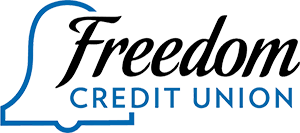A report from the National Financial Educators Council showed that 38% of individuals said their lack of financial literacy cost them at least $500 in 2022, including 15% who said it set them back $10,000 or more. That’s an 11% increase from 2021. Financial literacy is about mastering money skills like budgeting and investing. Start early for a lifetime of financial wisdom. Education is your ticket to financial success!
Areas of Study
You don’t have to have an MBA or work on Wall Street to successfully manage your finances. But the more you know, the more informed your decisions will be.
By adulthood, you should know how to:
- Build and follow a budget
- Manage and balance a checking account
- Save for things like emergencies, a home, a car, etc.
- Responsibly use and manage a credit card
- Understand and improve your credit score
Fin Lit Q&A
In recognition of April as Financial Literacy Month, we’re providing answers to some of the common financial questions we hear.
Am I better off paying down my debt or investing my money?
Paying off high-interest debt is likely to provide a better return on your money than almost any investment. If you can invest the money at a higher interest rate than the interest rate for your debt, investing likely makes more sense. More often, however, the interest on debt is higher, so paying down the debt is the way to go.
I’ve never created a budget. How should I start?
Follow the 50/30/20 Budget Rule. Split your after-tax income into three categories of spending: 50% on needs, 30% on wants and 20% on savings. You may need to adjust the formula if your “needs” take up more than 50% of your income. If that’s the case, try cutting back on the “wants” portion before cutting into your savings. Check out these tips for ways to boost your savings.
How much does the APR matter when I’m looking to get a credit card?
APR means annual percentage rate, which is the interest you’ll pay on an unpaid credit card balance. A high APR can rack up big costs over time. Unless you plan to pay off your balance in full every month (which helps you build credit and manage debt), you’ll want to get a card with the lowest possible APR.
When should I start saving for retirement?
Start building your nest egg before you hit 25. Kicking off your retirement savings in your early 20s (or even earlier) is the ultimate money move. Why? It’s all about the magic of compounding! By starting early, you could set yourself up to hit that coveted $1 million milestone by the time you reach 65. How much you actually need to save depends on your expenses and lifestyle.
A Wealth of Resources
There are lots of ways to approach mastering money skills, such as asking advice from someone more experienced, reading articles and books or talking to experts like those on our team.
You may also find resources like these helpful:
- AnnualCreditReport.com offers free credit reports, an important first step in taking control of your finances.
- MyMoney.gov provides a variety of tools, tips and more to help you understand how to manage your money.
- The National Endowment for Financial Education (NEFE) presents Smart About Money, with free online courses, information and tools to help you grow your financial literacy from the ground up.
- NEFE also offers Your Spending, Your Savings, Your Future: A Beginner’s Guide to Financial Readiness, as well as other free, online financial literacy publications.
We are happy to work with you to make sure you understand your financial options—whether you’re opening your first checking account, trying to decide on a mortgage option or determining the best way to save for your retirement. Stop by one of our branches or contact us if you need help.

